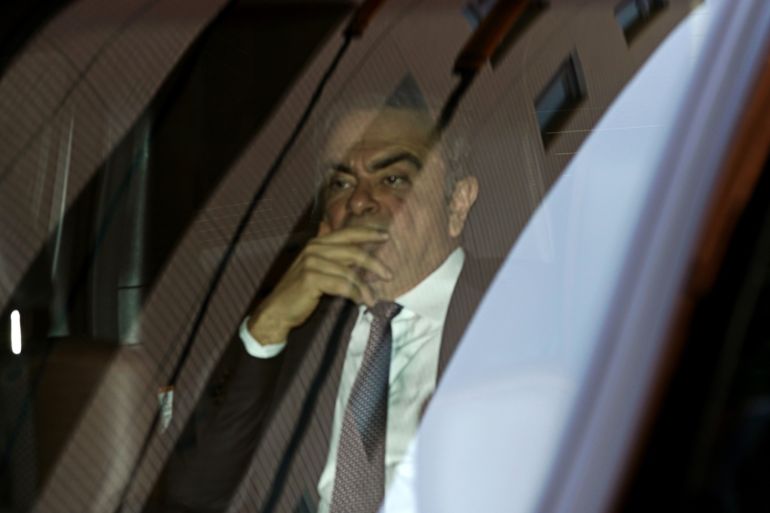Ghosn’s last stop in Japan: a low-profile private airport lounge
Turkish firm MNG Jet said one of its workers admitted to not putting Ghosn on official documentation.

A quiet lounge in a corner of Japan‘s third-largest airport was likely the last stop for Carlos Ghosn before he fled the country, transforming the former Nissan chairman into one of the world’s most famous fugitives.
Ghosn departed on a private jet from Kansai International Airport in the western city of Osaka, the plane’s operator said, meaning he would have left from the small lounge area used exclusively for private flights. The aircraft operator, Turkish firm MNG Jet, said one of its employees has admitted falsifying records by not including Ghosn’s name in the official documentation.
Keep reading
list of 3 itemsLebanon receives Interpol arrest warrant for Ghosn
Ghosn used spare French passport to flee, says report
Ghosn faces charges relating to alleged financial crimes in Japan and was able to orchestrate his departure despite being under strict surveillance by Japanese authorities, with his movements and communications curtailed. He denies the financial misconduct charges.
“He would have had to go through as a passenger; perhaps [he was] in disguise,” airport spokesman Kenji Takanishi told Reuters.
The slightly-built former Nissan boss has concealed his identity before: when first released on bail in March, he walked out of the detention centre disguised as a workman to avoid media attention.
After landing in Turkey, Ghosn switched planes and flew on to his childhood home, Lebanon. His escape capped a year-old saga, which has gripped the global auto industry.
Kansai airport spokesman Takanishi said privacy was a big attraction for wealthy travellers at the 300-square-metre Premium Gate Tamayura used for private jets (“tamayura” translates as “fleeting moment”).
Passenger in disguise?
Private jet owners pay 200,000 yen ($1,850) to use the private airport gate, where normal immigration and baggage procedures apply. Luggage too large for the X-ray scan is opened and examined, Takanishi said, meaning it was unlikely Ghosn could have been smuggled on board.
Yet immigration officials have no record of him leaving, public broadcaster NHK has reported. The former auto executive holds French, Brazilian and Lebanese citizenship.
“I think I would recognise Ghosn if I took a good look at his face, but we don’t really look at people’s faces,” said a security guard at the private gate.
“It would be harder to spot him if he was wearing a disguise or was in a group.”
One airport official, who also declined to be identified, said airlines often outsource security and luggage checks to private security companies in Japan, unlike other countries where government or military officials usually perform these checks.
Outside the terminal entrance, a dedicated car park stands less than 100 metres away, allowing a degree of privacy not afforded to commercial jet passengers.